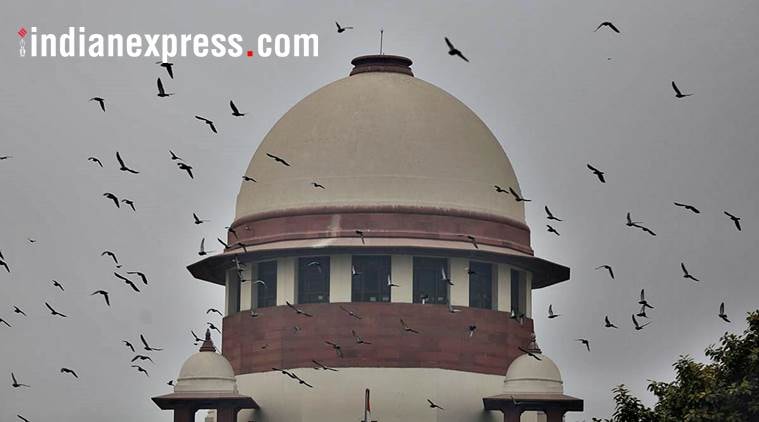Stay updated with the latest - Click here to follow us on Instagram
Supreme Court to Centre: Set up 12 special courts for cases against tainted MPs, MLAs by March 1
The Supreme Court on Thursday approved the government's proposal for setting up 12 special courts for trying pending criminal cases against 1,581 MPs and MLAs
 The Supreme Court asked the state governments to set up the fast-track courts after due consultation with respective High Courts. (Express photo)
The Supreme Court asked the state governments to set up the fast-track courts after due consultation with respective High Courts. (Express photo)
The Supreme Court on Thursday approved the government’s proposal for setting up 12 special courts for trying pending criminal cases against 1,581 MPs and MLAs. The apex court granted the Centre two months to collate data of pending cases against tainted lawmakers and directed that the special court should become operational by March 1, 2018.
The SC’s response was on an affidavit filed by the Centre on Tuesday following a PIL filed by Delhi BJP leader and advocate Ashwini Kumar Upadhyay, seeking a lifelong ban on convicted politicians from contesting elections. The government had said it did not have data on how many of these cases have been decided and whether any new case had been filed against an MP or MLA between 2014 and 2017 and sought time to collect data.
In the affidavit, the Law Ministry said, “As per the directions of the Supreme Court, it is proposed to have 12 special courts with an estimated expenditure of Rs 7.80 crore over a period of one year to dispose of all cases involving political persons.”
On Thursday, the SC asked the state governments to set up the fast-track courts after due consultation with respective High Courts. “State governments in consultation with HCs will set up fast-track courts and ensure they start functioning from March 1, 2018,” the top court said.
It also directed the Centre to proportionally allocate Rs 7.8 crore to states where 12 special courts would be set up. The Centre had proposed to form two special courts for trying cases against MPs and one each in Andhra Pradesh, Karnataka, Kerala, Madhya Pradesh, Maharashtra, Tamil Nadu, Telangana, Uttar Pradesh, Bihar and West Bengal.
The number of courts “has been calculated on the basis of the 11th Finance Commission analysis that one such court can dispose of 165 cases per annum”, said the government. In states where there are less than 65 cases, it has been proposed that the cases should be sent to the existing fast-track courts. In March 2014, the apex court had directed that cases against people’s representatives should be disposed of within a year.







